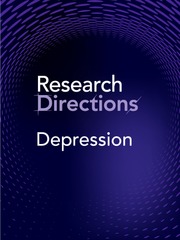Context
One of the greatest global threats to mental health and wellbeing is the already discernible impact of climate change on local communities, particularly those living in the most vulnerable places on the planet, as well as the predicted impacts globally over the next 25–50 years (Romanello et al., Reference Romanello, McGushin, Di Napoli, Drummond, Hughes, Jamart, Kennard, Lampard, Rodriguez, Arnell and Ayeb-Karlsson2021). Impacts have already been reported in those communities which have been devastated, often repeatedly, by extreme weather events (floods, cyclones, drought, bushfires, etc.) (Obradovich et al., Reference Obradovich, Migliorini, Paulus and Rahwan2018). These include massive social dislocation, loss of social connections and breakdowns in education, employment, economic and housing security – all factors known to increase the risk of common mental health conditions including anxiety, depression and other mood disorders.
The occurrence of such events, the global reporting of their impacts, along with the continued predictions of rapid deterioration in sentinel markers (e.g., glacial melting, loss of sea ice, Arctic and Antarctic ice sheet losses, hottest years on record), and the ongoing lack of a coordinated global response, has been associated with increased ‘climate anxiety’ – especially among young people, leading to a sense of hopelessness about their long-term futures (Hickman et al., Reference Hickman, Marks, Pihkala, Clayton, Lewandowski, Mayall, Wray, Mellor and van Susteren2021).
Other more subtle changes in factors associated with depression and other mood disorders are also attracting attention. These include the impacts of changes in average temperatures (notably significant heating in temperate climates) being associated with mood disturbance, sleep-wake cycle disruptions, increased alcohol, sedative or other substance use and domestic and other violence (Obradovich et al., Reference Obradovich, Migliorini, Mednick and Fowler2017). Further, significant changes in seasonal patterns may result in further instability in sleep-wake cycles, physical and social activity patterns and mood disturbance in vulnerable individuals.
Consequently, there is an urgent need to track the relationships between significant variations in climate conditions in various communities across the globe and:
-
i) changes in the incidence or prevalence of depression and other mood disorders, noting which age or demographic groups are most affected;
-
ii) what types of social or other environmental risk factors are the mediators of the impacts of climate change on rates of depression and other mood disorders;
-
iii) what actions are being taken – at the individual or community level – to ameliorate the adverse impacts of climate change in different communities; and
-
iv) how are the adverse effects of climate change being monitored in different communities.
Beyond the epidemiological aspects, there is also an urgent need to propose what types of individual or community-based interventions are most likely to protect people, especially at-risk groups (e.g., young, older and those vulnerable to mood disorders) from the adverse mental health effects of climate change.
How to contribute to this Question
If you believe you can contribute to answering this Question with your research outputs, find out how to submit them in the instructions for authors (https://www.cambridge.org/core/journals/research-directions-depression/information/author-instructions/preparing-your-materials). This journal publishes Results, Analyses, Impact papers and additional content such as preprints and ‘grey literature’. Questions will be closed when the editors agree that enough has been published to answer the Question so before submitting, check if this is still an active Question. If it is closed, another relevant Question may be currently open, so do review all the open Questions in your field. For any further queries check the information pages (https://www.cambridge.org/core/journals/research-directions-depression/information) or contact this email (depression@cambridge.org).
Competing interests
EMS is the Medical Director of the Young Adult Mental Health Unit at St Vincent’s Hospital in Darlinghurst, the Adult Mental Health discipline leader at the University of Notre Dame School of Medicine, a research affiliate at the University of Sydney and a consultant Psychiatrist. She has received honoraria for educational seminars related to the clinical management of depressive disorders supported by Servier and Eli-Lilly, participated in a national advisory board for the antidepressant compound Pristiq (Pfizer) and was the National Coordinator of an antidepressant trial sponsored by Servier. IBH is the Co-Director, Health and Policy at the Brain and Mind Centre (BMC) University of Sydney, Australia. The BMC operates early-intervention youth services at Camperdown under contract to Headspace. Professor Hickie has previously led community-based and pharmaceutical industry-supported (Wyeth, Eli Lily, Servier, Pfizer, AstraZeneca, Janssen Cilag) projects focused on the identification and better management of anxiety and depression. He is the Chief Scientific Advisor to, and a 3.2% equity shareholder in, InnoWell Pty Ltd, which aims to transform mental health services through the use of innovative technologies.




